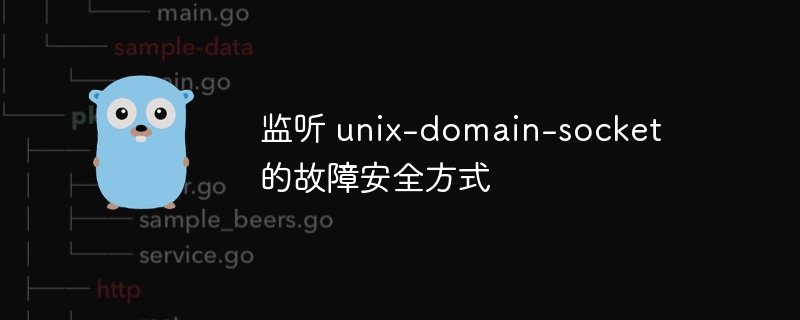

In network programming, unix-domain-socket is a common communication method that allows efficient communication between processes on the same machine. However, unix-domain-socket may experience failures due to various reasons, such as network failures or process crashes. In order to ensure the stability and reliability of applications, PHP editor Xinyi will introduce some fail-safe methods of monitoring unix-domain-socket in this article to help developers solve these problems.
This code works fine the first time it is run:
package main
import (
"context"
"fmt"
"net"
)
func main() {
ctx := context.background()
udsname := "dummy.socket"
var lc net.listenconfig
_, err := lc.listen(ctx, "unix", udsname)
if err != nil {
panic(fmt.sprintf("failed to listen(unix) name %s: %v", udsname, err))
}
fmt.println("all is fine")
}But the second run failed:
panic: failed to listen(unix) name dummy.socket: listen unix dummy.socket: bind: address already in use
I can delete the file before listen() but this may fail if there is already a process listening to this socket.
Is there a way to detect if a process is listening on a socket?
Then, if the old server dies, I can delete the old dummy.socket file.
Delete the unix socket file before binding, the "fail-safe" way only I know:
package main
import (
"context"
"fmt"
"net"
)
func main() {
ctx := context.Background()
udsName := "dummy.socket"
os.Remove(udsName) //delete the unix socket file
var lc net.ListenConfig
_, err := lc.Listen(ctx, "unix", udsName)
if err != nil {
panic(fmt.Sprintf("failed to listen(unix) name %s: %v", udsName, err))
}
fmt.Println("all is fine")
}
The above is the detailed content of Failsafe way to listen to unix-domain-socket. For more information, please follow other related articles on the PHP Chinese website!




